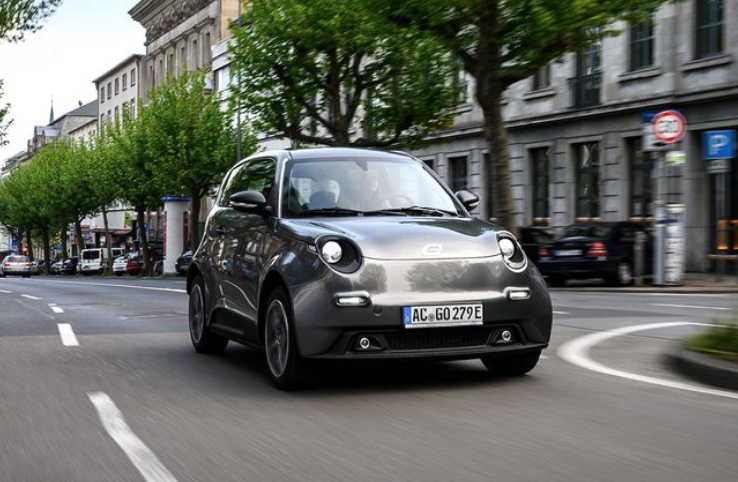Almost three months after filing for insolvency for a second time, the German electric car manufacturer e.Go has to call it quits. According to the insolvency administrator, business operations will be discontinued, and the company will be liquidated.
The liquidation was unavoidable “because, despite intensive efforts, no buyer could be found to take over the financing until the new e.wave X model was ready for production,” the insolvency administrator explained in a letter to German media.
320 employees were still working for e.GO when the company filed for insolvency in March. Some have since left the company. The remaining 200 employees will be made redundant “in the near future.”
Too long delays
The company has been experiencing difficulties for some time. According to the German publication Aachener Zeitung, e.Go reduced staff working hours at the beginning of March.
Moreover, the US stock market price is said to have collapsed within six months of the company’s stock market debut in autumn 2022. In addition, e.Go announced in a mandatory report for the US stock exchange that the Dutch parent company Next.e.GO N.V. and other subsidiaries are also expected to become insolvent.
One of the complex problems is delays in the EU model approval of the e.wave X, the successor to the first e.Go Life. Pre-sales, including configurator activation, started in October 2022, but the model is still not on the market. The manufacturer allegedly received 11,000 pre-orders for the small electric car. It only sold 1,350 units of its predecessor, the e.GO Life.

Permanent struggle
Three and a half years ago, in July 2020, the Aachen district court opened insolvency proceedings for e.Go for the first time. The proceedings were self-administered at that time, primarily due to the COVID-19 crisis.
The rescue came in the form of Investor ND Industrial B.V. The Dutch company took over the entire business of e.GO Mobile AG, including all subsidiaries and 400 employees at the time, on 1 September 2020. Since then, the company has been operating under the name Next.e.GO Mobile SE.
RWTH professor and e.GO founder Günther Schuh relinquished operational responsibility as part of the change of ownership and left the company entirely in 2021. e.Go was founded on his initiative in 2015. The main objective was commercializing a small electric car, but with ZF, the Aachen-based company also initially developed an autonomous ‘people mover’.
The decision to apply for the opening of the insolvency proceedings in March 2024 came “amidst a backdrop of recent adverse developments and challenges in the EV industry, volatility in the capital markets, exacerbated by the recent situation surrounding other players in the EV sector,” said e.GO a few months ago.
“Given the unfavorable market environment, the equity-based financing instruments that were secured by the Company could not perform to the expected level and pace. Moreover, despite significant efforts by the company, the prevailing market conditions and uncertainty across the EV sector have further significantly hindered the company’s ability to secure alternative funding as required under the local regulatory framework”, the press release at the time stipulated.
The e.Wave X had a 44 kW electromotor (86 kW peak power) and reached a top speed of 135 kph. Its WLTP energy consumption was 18.6 kWH/100 km. With a lithium-ion battery pack of 30,4 kWH, its WLTP range (combined) was 163 km or some 250 km of pure city driving. The 3.36 m long EV gave room for 4 occupants and weighed some 1,2 tons.





Comments
Ready to join the conversation?
You must be an active subscriber to leave a comment.
Subscribe Today